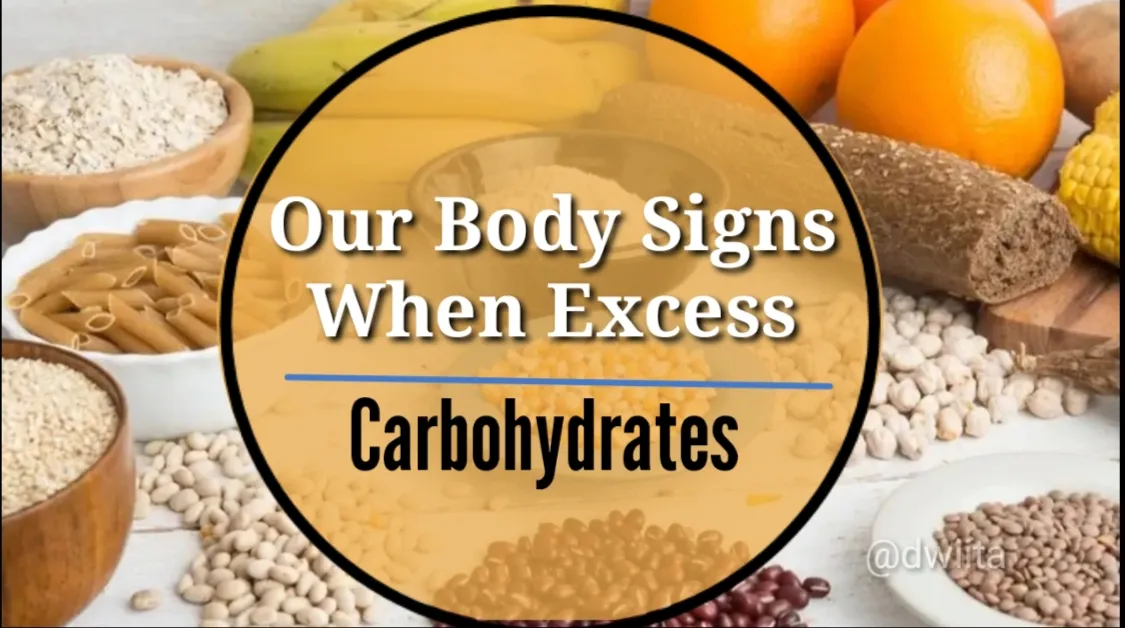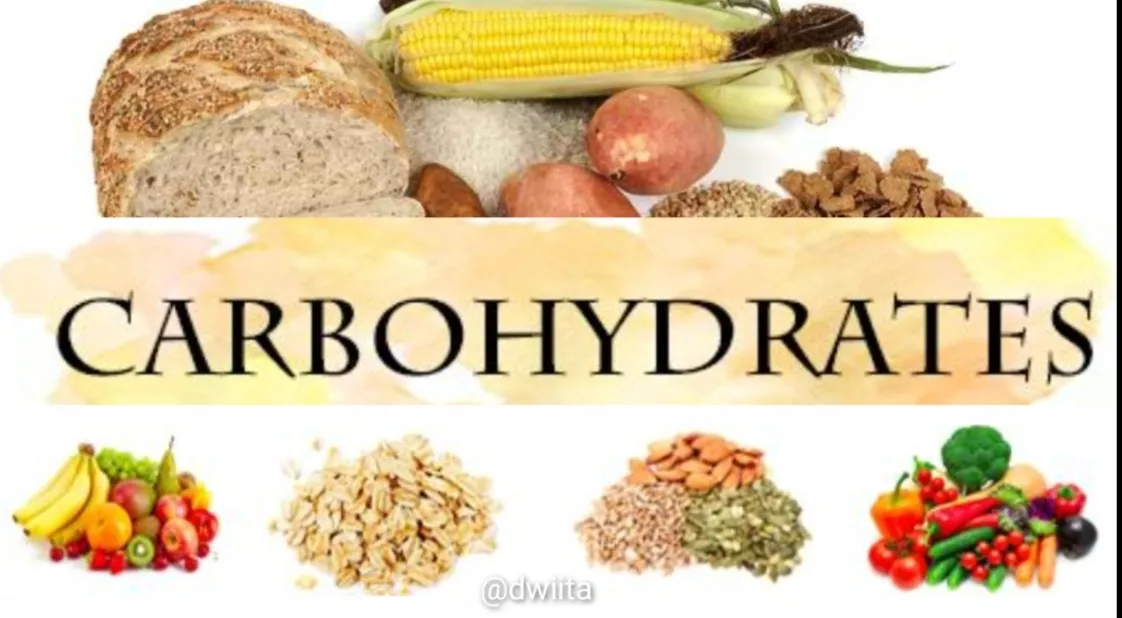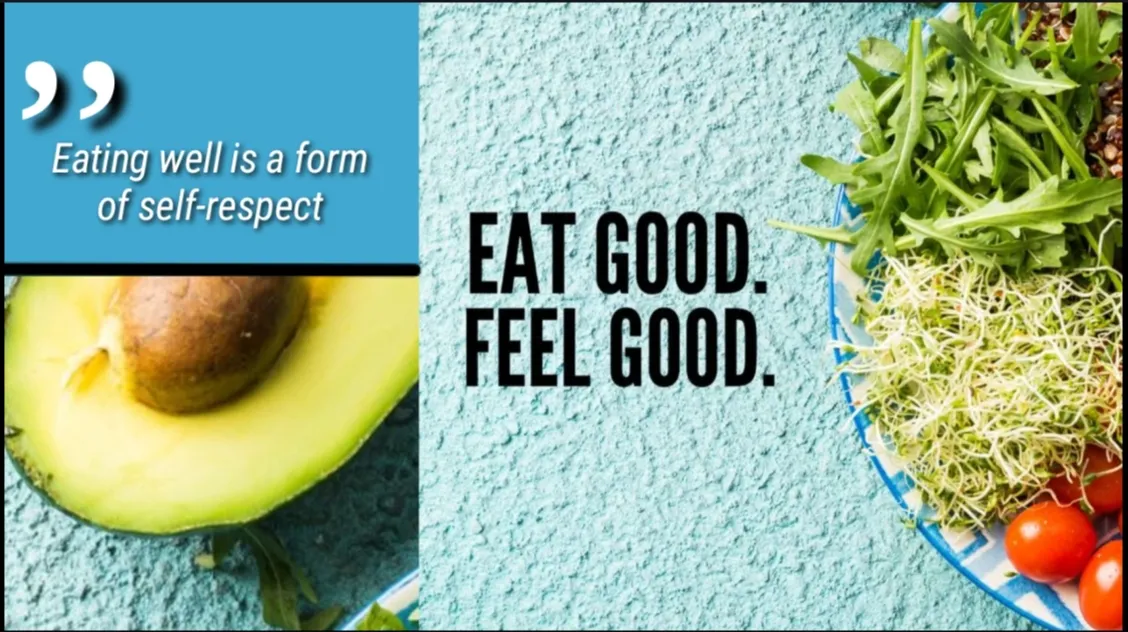
CARBOHYDRATES are mainly used as a source of energy for the body to carry out various functions, as well as to perform various activities (breathing, moving, walking, thinking, exercising, etc.). One gram of carbohydrates contains approximately 4 kilocalories, the same amount as protein.
What Happens When Lacking & Excess Carbohydrates
When we consume carbohydrates, the body will convert it into glucose through the process of glycolysis, then insulin will help glucose to be absorbed by the body's cells which are used as the main fuel (energy) for the body. Sugar produced from carbohydrates will be stored in the form of fat in the body if it is not used immediately.
Therefore, consuming excessive carbohydrates means that you will store more fat in the body, which can increase the risk of various diseases, such as obesity, diabetes and heart disease. But lack of carbohydrates is also not good for the body, because the body will be weak and take protein and fat for energy. The process of breaking down fat for energy can cause a buildup of ketones in the blood. If allowed to continue, it can cause ketosis which causes dizziness, weakness, nausea and dehydration.

Carbohydrates themselves are divided into 2 based on differences in their chemical molecular structure, namely complex carbohydrates and simple carbohydrates.
• Complex carbohydrates have a longer chain of sugar chains, so they take a long time to be digested and absorbed by the body. Complex carbohydrates keep you full longer and healthier because they contain more vitamins, minerals and fiber. Complex carbohydrates are commonly found in whole grains and fiber foods. Examples of sources of complex carbohydrates are: whole wheat bread, brown rice, sweet potatoes, potatoes, corn, quinoa, cassava, beets, bananas, apples, taro, red beans, etc.
• Simple carbohydrates, containing only basic sugars so they are easily digested and absorbed by the body. Examples of simple carbohydrate sources include: white bread, white rice, sugar, candy, etc.
Each person's daily carbohydrate needs vary, depending on age, gender, body weight, height and physical activity undertaken, as well as certain medical conditions.
| CATEGORY | TOTAL CARBOHYDRATE PER DAY |
|---|---|
| Healthy Adults | 220 - 300 grams |
| Adults on a Diet | 50 - 150 grams |
| Children | 155 - 254 grams |
| Women <50 years | 285 - 323 grams |
| Women> 50 years | 232 - 285 grams |
| Male <50 years | 349 - 394 grams |
| Male> 50 years | 248 - 349 grams |
Carbohydrates are one of the 3 essential macronutrients (nutrients that are simultaneously present in some of the food we eat) that the body needs in addition to protein and fat. The sources of carbohydrates that we know, such as pasta, fried noodles, bread, are among the foods that are difficult to refuse and often trap them into consuming excessive carbohydrates.

The following are signs that the body gives as a result of excessive carbohydrate consumption:
• The body becomes weak and tired quickly. The American Heart Association says when the body digests simple carbohydrates, glucose is released into the bloodstream in large doses. Energy appears like an explosion and lasts briefly, then you will feel energized.
• The stomach is often bloated, simple carbohydrates are very minimal in fiber and contain lots of water. Like white rice, white flour is mostly consumed. In contrast to complex carbohydrates which contain lots of fiber. Consumption of large amounts of simple carbohydrates, especially at night, can result in increased bloating and water retention (fluid retention / edema is a condition of the body with excess fluids).
• Weight gain, foods high in carbohydrates are often accompanied by foods high in fat so this results in excess calorie intake as well. High calorie intake and not accompanied by high physical activity will also result in uncontrolled weight gain.
• Sleeping problems, trouble sleeping is determined by many factors, one of which is excessive carbohydrate consumption. Consumption of snacks that are high in carbohydrates can force the body to digest sugar. This is tantamount to asking the body to work rather than rest. As a result, our eyes will be difficult to close.
• Face acne, the appearance of acne on the face or other body parts is determined by many factors. Some people will develop acne when they consume excess carbohydrates in their diet. This is because the sugar from carbohydrates increases the production of the androgen hormone group associated with hormonal acne.
• Difficult to concentrate, excessive consumption of carbohydrates will make the body weak and discouraged. As a result, it will be difficult to focus, to overcome this, each portion of food must contain balanced nutrition so that work performance is not disturbed due to decreased cognitive abilities.
• Make addicted to sweet foods, consumption of excess sugar is very bad for the body and everyone knows it. Simple carbohydrates break down quickly into glucose. Eating bread made from wheat flour, white rice is like consuming sugar. Consumption of sugar causes the body to release dopamine, a hormone that can cause feelings of pleasure and addiction. The more sugar you eat, the more dopamine is released.
Lack of carbohydrates is not a good thing for the body because of the risk of lack of nutrients for bodily functions, but excess consumption of carbohydrates has a negative impact on the body. So it is necessary to be careful in choosing the type of carbohydrates and also regulating the portion of carbohydrates we consume, in order to get the benefits of carbohydrates that are appropriate for the body's needs and optimal energy.[]



